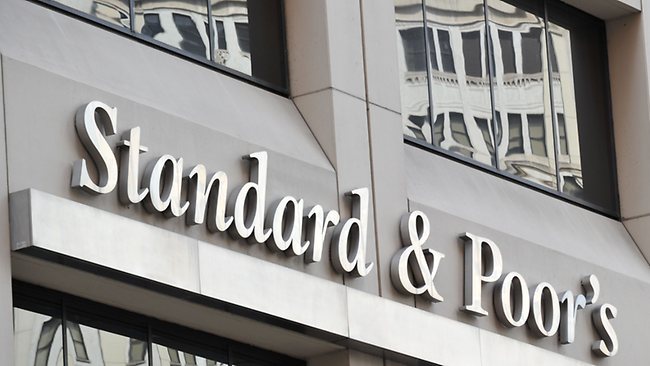S&P Global Ratings on Friday revised Egypt’s outlook to positive from stable, maintaining the “B-/B” long- and short-term foreign and local currency sovereign credit ratings.
According to the report published by S&P, the revised outlook reflects the potential of raising the rating next year, if structural reforms that support investment, growth, and decrease inflation continue.
The flotation of the currency has controlled foreign currency shortages and increased the competitiveness of manufacturing and tourism while also leading to an increase in Egypt’s foreign currency reserves. However, flotation, in addition to subsidy cuts, and VAT, are leading to soaring inflation, the statement indicates.
S&P projects that inflation will gradually descend over the next years and that further delivery of ongoing economic and fiscal reforms will support rising business confidence and sustain capital
inflows.
However, S&P maintained the B- rating due to wide fiscal and external deficits, high public debt, and low income levels. The statement explains that as a result of the larger than expected currency depreciation, and the interest rate hikes by the Central Bank of Egypt (CBE), debt has increased, peaking at 103% of GDP in the fiscal year (FY) 2017.
The report estimates Egypt’s GDP growth in FY 2017 at 4.2%, and forecast that average growth over FY 2018, 2019, 2020 to increase to 4.4%, rising from their previous estimate of 3.8%, supported by ongoing improvement on the external front, reflected by rising foreign direct investment (FDI), remittances from Egyptians working abroad, and a steadily declining energy deficit as new natural gas production begins.
Moreover, the report indicates that the implementation of the new natural gas law would boost growth, and increase the competitiveness of the energy sector by allowing the private sector to supply gas directly to end users, competing with the state-owned company, EGAS. Gas market liberalisation, in addition to the reduction in arrears to oil companies, would allow more investment into exploration and production of gas, and alleviate fuel shortages.
S&P forecast that political stability will continue under President Abdel Fattah Al-Sisi, and rule out any significant upheaval or policy changes in the run-up to the presidential elections in early 2018.
However, the socio-political environment in Egypt remains fragile. Social discontent, due to the increased cost of living, remains a risk to the fiscal consolidation program and economic reforms, the report indicates.
Meanwhile, security threats have mostly remained contained to North Sinai between the Egyptian security forces and a militant group affiliated with ISIS. However, there have also recently been some targeted attacks on police and military forces in Egypt’s mainland. S&P believes that potential terrorist incidents affecting civilians or tourists could significantly affect the recovery in tourism and dampen investor sentiment.
The report concludes that Egypt’s fiscal trajectory remains on a gradual consolidating trend, and estimates Egypt’s general government fiscal deficit to decrease to 8.2% of GDP by FY 2020. S&P forecast that the CBE will slightly lower its policy rates starting in 2018, as a result of the decelerating growth of private consumption and the government’s high debt burden.







